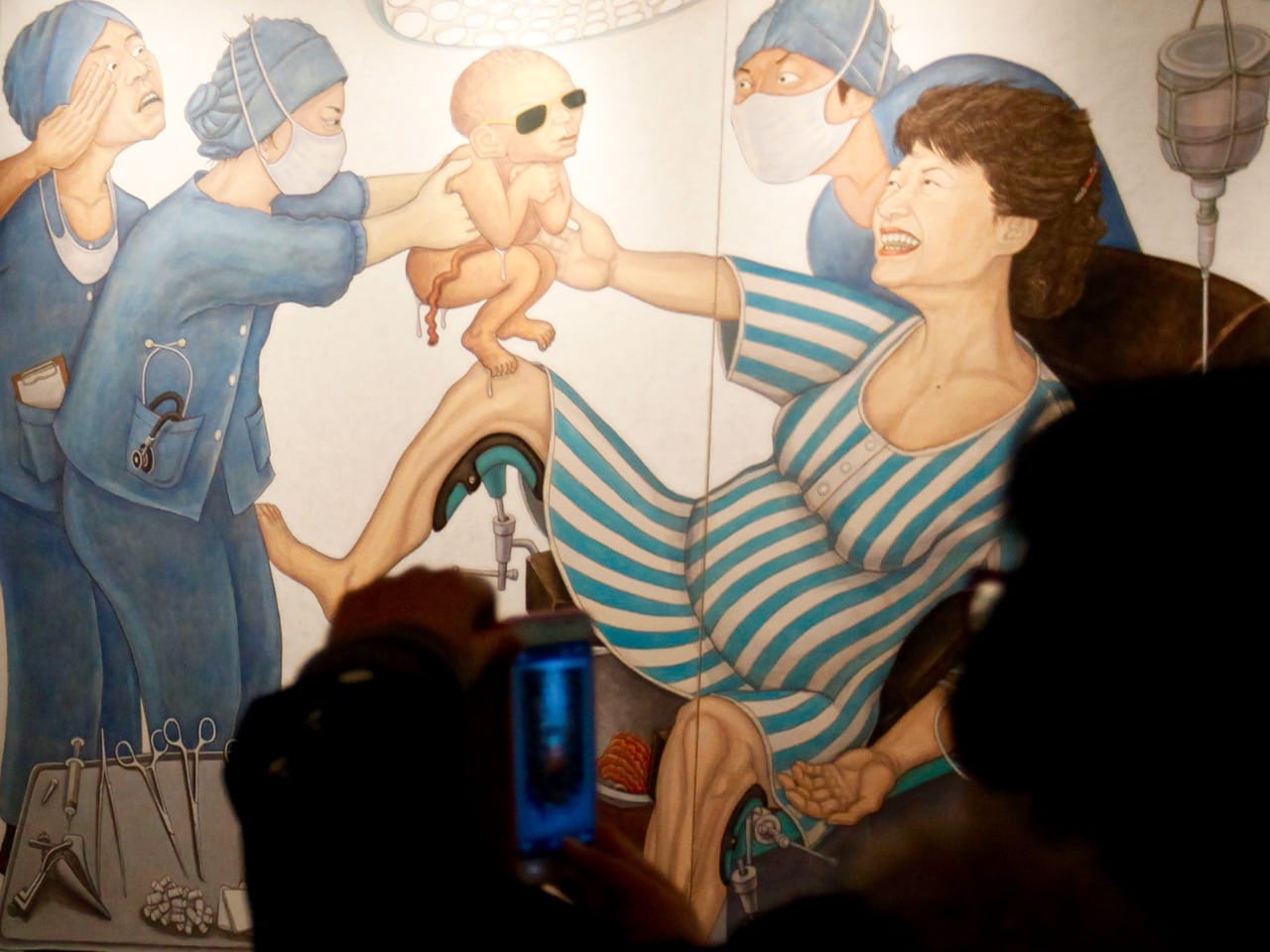High level government officials accused of creating a 'blacklist' against 9,743 artists in South Korea for their criticism of President Park Geun-hye are now themselves under investigation.
Since coming to office in 2013, President Park has overseen a marked decline in rights protection. This includes quashing anti government protests, the forced closure of an opposition party, withdrawal and revision of school history text books and the ramping up the use of national security laws to block free speech. These actions raise fears of South Korea returning to its turbulent decades of repression and authoritarianism under Ms Park’s father, Park Chung-hee’s military rule in the 1960s and 70s.
Then, on 16 April 2014 came the tragedy that led to the exposure of government failings and mass protests. The capsizing of the Sewol Ferry that morning led to the deaths of over 300 of its 476 passengers, many of them students. There was sharp criticism of the multiple failures by the captain of the vessel, rescue services, and the ferry owners. President Park’s slow response and attempts by her government to shirk responsibility heightened the anger.
Artists were in the thick of the protests. Among them was painter Hong Song-dam, whose political art had got him imprisoned and tortured in the 1980s. In August 2014, the director of the 2014 Gwangju Arts Biennale resigned when a painting by Hong was barred from the festival under threat of losing key funding from the Gwangju city council. Hong’s massive painting depicts President Park steered by her father alongside present day military and business leaders, confronting the families of Sewol ferry victims. Hong’s attempt to reintroduce the painting to the Biennale by replacing the image of Ms Park with a cockerel’s head was to no avail.
Another to suffer reprisals is the Busan Film Festival which had its funding from Busan city council and the Korean Film Council cut when it refused to withdraw from its program The Diving Bell, a documentary criticising the official handling of the Sewol disaster. There were reports that the cuts were accompanied by unprecedented investigations into the festival’s organising committee, pressure that eventually led to the resignation of the festival director.
With the events in Busan and Gwangju came rumours of a blacklist against other artists who had criticised the government. Then in September 2015 a report was leaked suggesting that just such a blacklist existed. According to this leak, no fewer than 9,473 names on the list, divided into four groups: the first of 594 artists who had opposed a government order restricting press coverage of the Sewol sinking; the second of 754 artists who had signed a statement demanding that the government accept responsibility for the disaster; the third of 6,517 artists who were supporters of a candidate who ran against President Park in the 2012 election; and the fourth of 1,608 artists who had given their support to the Seoul mayor who had beaten the President’s preferred candidate in the mayoral election in 2014.
This list, which includes leading popular actors, directors and producers, is thought to have been facilitated by a cyber investigation team set up following the Sewol tragedy to identify and then penalise President Park’s critics. Calls for an investigation were met with government denials but then, in late December 2016, investigators raided the homes of officials close to President Park. Among those subsequently summonsed for questioning are the culture minister, a former presidential chief of staff, a former senior secretary for education and the South Korean ambassador to France.
All this has come in the midst of an even larger controversy that could see the end of Ms Park’s presidency. Earlier in December she stepped aside from her duties while the Constitution Court considers a parliamentary call for her impeachment. The call centres on a scandal surrounding Ms Park’s relationship with a childhood friend who is on trial for using her connections with the President to coerce companies to donate millions of dollars to foundations in her control. Ms Park is accused of having colluded with her friend. If the impeachment goes ahead – the court has until June to come to a decision – new elections will be held within 60 days.
South Korea has a long history of political dissent which, in the early 1990s, led to the end to decades of dictatorship. Until recently there has been almost unblemished respect for freedom of expression, with breaches being relatively rare. However the spirit of civil dissent and art activism remains strong, ensuring that government is not allowed to escape scrutiny and is called to account.
I don’t think it is taboo to satirize a country’s president… Freedom of artistic expression should not be restricted by the government just because they have the exhibition budget under their control.
Former President of the Gwangju Arts Biennale in a press conference announcing his resignation
The Government is trying to control the arts so they can oppress those who criticize them and block negative messages.
Film director and Sejong University Professor Lee Jeong-guk
